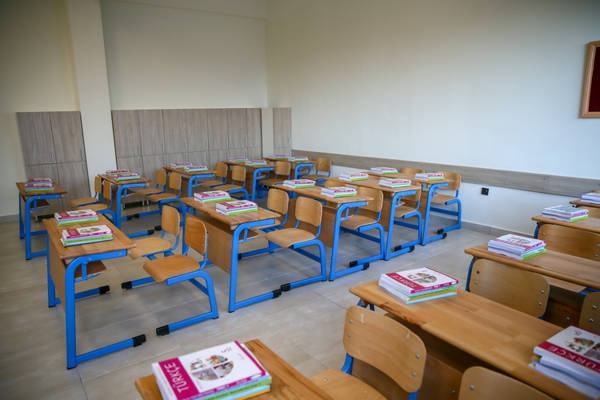Photo: Canva
Click to read the article in Turkish
According to the World Report on Disability, prepared by the World Health Organization (WHO) in 2011, 10-12 percent of the world population consists of disabled people.
The report indicates that the disabled are the largest minority in the world, but yet invisible.
An important part of this population is disabled children. According to WHO data, 5 percent of the disabled children in the world, thus 93 million of them are gravely disabled.
President of the Association of Mothers and Volunteers of Disabled Children (EAGD), Şenay Keçeci is indicating that this means that 600 thousand of the disabled children in Türkiye are gravely disabled.
A significant part of the responsibility for their care is taken by their mothers. The association is campaigning for pension rights for women who give care to the gravely disabled at home and organized the Workshop for Preparation of Legislation for Pension Rights of Women Giving Care to Gravely Disabled at Home last week in Ankara.
Speaking in the workshop Keçeci gave the following information:
"Approximately 600 thousand gravely disabled persons are given care at home in Türkiye. The State has left this responsibility which it has to take according to the social state principle, to the family. And the family assigns this responsibility predominantly to women. The work is carried out by women for 91 percent (about 540 thousand) of these gravely disabled persons given care at home."
"Women have no time to work"
Keçeci also said, "A 'care salary' is paid to the persons giving care to gravely disabled at home. The care salary is 3.339 TL (185 Euros) for the July-August 2022 period, thus 60 percent of the minimum wage. The person given care has to have a disability of more than 50 percent and the report by a Health Committee has to include the expression 'gravely disabled.'
"Another condition for the care salary to be given is that 'the average monthly income per person in the household should be less than 2/3 of the minimum wage'."
Şenay Keçeci said, "This condition shows that in fact the salary paid is not a care salary but that it is a subsidy. Women giving care to the gravely disabled at home are entitled to some advantages in qualifying for a pension. Accordingly, for an employee giving care to a gravely disabled person who is also working, and whose social security premiums are being paid, one-fourth of the number of days for which the premiums are paid are added up to their number of days worked. And the same amount is deducted from the retirement age calculation.
"However there is a problem. The women giving care to the disabled do not have any time to work outside. According to the data of the Turkish Statistical Institute, the number of women making use of this advantage in qualifying for a pension was 1164 in 2020. Only 1164 women out of approximately 540 thousand made use of this advantage granted by law."
Solution proposals
Keçeci, lists their proposals as follows:
"Principally, care given to the gravely disabled should not be left as a "burden" on the family. First of all, the state has to take this responsibility as a social state and a care program and necessary infrastructure should be established with which the requirements of the gravely disabled individuals are met.
"As a second point, if such care is going to be given at home, it should be given by experts who are trained for this, and who have the necessary formation and qualifications.
"Women living a one-person life"
"The current practice, which keeps the women away from working, from cultural activities, etc. thus away from life and compels them to live 'a one-person life with the gravely disabled person' should be finished.
"The state is having the women do the caring work, which in fact should be its own responsibility, paying money under the minimum wage and no social security premiums. The social security premiums of such women should be paid by the state and these women should be entitled to pension rights.
"Another important point; our demand is related to women but this does not mean that it does not cover those other than women who are giving care to the disabled."
This campaign by the Association of Mothers and Volunteers of Disabled Children started over seven months ago with a petition for which almost 30 thousand signatures have been collected so far. Activities organized with political parties, non-governmental organizations and other related parties followed. The campaign will continue with proposals for law amendments to be proposed in the parliament. (AÖ/PE/VK)










